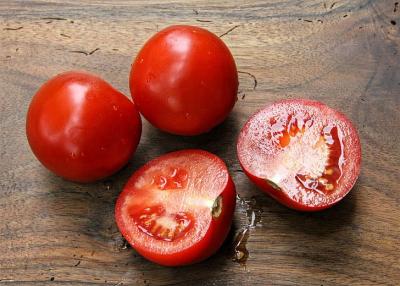
Fruit is a dessert from nature. It contains fructose, which is a natural sugar, but also vitamins, minerals, fiber, polyphenols and the like.
However, many believe that sugar should be avoided, but in that way nutrients that are important for the body are not ingested, and thus it has consequences for the body.
Research has shown that by avoiding fruit, you can make some unhealthy changes in your body.
Here are the most common changes:
Weight gain
The problem with throwing out a whole group of foods is that they are usually replaced by another, probably more harmful one. Of course, if you cut out fruits and eat more vegetables, that's a good choice. However, if you resort to sweets or fast food due to lack of fruit, you have not done your body a favor.
The advantage of fruit is not only that you will eat less unhealthy foods. The fruit is rich in water and fiber, which gives satiety and prevents overeating.
A study published in the journal Appetite investigated the difference in satiety after eating apples, apple sauce and apple juice before a salty meal. The results showed that eating apples before lunch can reduce food intake by 15%, while juice and sauce have not achieved such an effect.
Inflamed muscles
Do you know those muscle aches that occur 12 to 48 days after intense training? If you avoid carbohydrates, which include fruits, you can worsen the inflammation and it can last longer.
The best fruits to reduce muscle inflammation are berries and cherries. A study published in the "Journal of the International Society of Sports Nutrition" found that blueberries reduce inflammation and muscle damage caused by exercise.
In this study, 10 women drank blueberry smoothie or placebo 5-10 hours before exercise, and drank the same beverage again 12-36 hours after exercise. By measuring oxidative stress and antioxidant capacity 60 hours after exercise, the scientists found that blueberry smoothie accelerates muscle recovery and reduces oxidative stress that occurs 36 hours after exercise.
A study published in the journal "Antioxidants in Sport Nutrition" states that by consuming cherry juice, runners prevented muscle pain, fatigue and accelerated muscle recovery.
Hypoglycaemia
Fatigue and dizziness are common symptoms of low blood sugar or hypoglycemia, and this can occur during exercise. By avoiding fruit, you miss the simplest and fastest way to get "fuel" (glycogen).
Fruit is a great source of healthy carbohydrates, which means that you will get the necessary nutrients, and you will not feel bloated. Since fresh fruit also contains fiber, there will be no sudden jump in blood sugar.
Strong cravings
Do not underestimate the power of fruit in preventing cravings. If you often feel cravings for sweets, study what you ate that day and you might conclude that you may not have eaten any fruit. The most common example is the craving for chocolate. Chocolate is rich in magnesium, as are bananas and avocados. When your body lacks magnesium, you will crave chocolate.
The fruit contains micronutrients that the body needs to function properly and maintain optimal health. When we do not take in certain nutrients from fruits, we can create a lack of nutrients.
This, of course, can affect the health and functionality of our body.
Breathing problems caused by exercise
According to a study published in the journal Antioxidants in Sports Nutrition, athletes on fruitless diets may experience more respiratory problems, including worsening exercise-induced asthma.
Researchers say that athletes with a diet rich in antioxidants could protect themselves from airway inflammation caused by training and pollution. Of course, vegetables can also provide antioxidants in the fight against inflammation, but experts recommend the intake of both fruits and vegetables in order for the body to get as many different types of nutrients as possible.
Gut issues
Human intestines contain many microorganisms, and depending on the diet and lifestyle, they can be bad and good. It is important to maintain as many good microorganisms as possible because they affect digestion and the immune system. Without fiber and nutrients from plants (polyphenols) that we get by eating fruits and vegetables, there can be an imbalance in the intestinal flora.
Gastrointestinal disorders can lead to a variety of conditions and diseases, including allergies, cardiovascular disease, metabolic syndrome, diabetes and obesity. But don't worry, you can easily get your gut back in balance.
One study found that women who eat two apples a day can improve intestinal health in just two weeks. Scientists believe that the pectin found in apples is responsible for that.
Gas, bloating, constipation
Other potential side effects of too many bad bacteria in the gut, such as nausea and reflux, can be due to a lack of fiber in the fruit.
Fruit fibers act as prebiotics in the intestines, which feed on good bacteria.
Too many bad bacteria lead to gas, bloating, constipation and even chronic inflammation in the body, all of which can affect the immune system and cardiovascular health.
By consuming two servings of fruit a day, you can prevent many problems and improve your overall health. If you are not a fan of the fruit itself, you can combine it with peanut butter or make a smoothie.
Muscle cramps and high blood pressure
These two problems may seem unrelated, but they can actually occur due to a lack of potassium in the body. Potassium relaxes blood vessels, which means that blood pressure is reduced, the risk of stroke and muscle cramps. Fruit is the most important source of potassium. It is found in bananas, oranges, watermelons, grapefruits, prunes and dates.
Another important ingredient in fruit that can lower blood pressure, flavan-3-ol, is a set of compounds that can improve vascular function. It is found in apples, grapes, pears and berries.
Skin aging
If you avoid eating fruit, you also avoid the intake of antioxidants, vitamins and minerals that are crucial for skin health.
How much fruit do you need to eat?
When it comes to fruit consumption, there are usually two types of people: some avoid it altogether, while others consume it excessively.
Actually, the ideal amount is somewhere between these two extremes and varies from person to person. There are four important things to keep in mind to help you figure out how much fruit you need: stick to two to four meals - one serving is one a cup of fruit or a piece of fruit the size of a tennis ball, the need for fruit is based on the need for energy - when you eat more carbohydrates than you consume, the excess will feed your existing fats or be stored as fat, be careful when eating - try to eat fruit before activity, so you will use carbohydrates for fuel, fruit is rich in nutrients - the most important reason for regular fruit intake.



